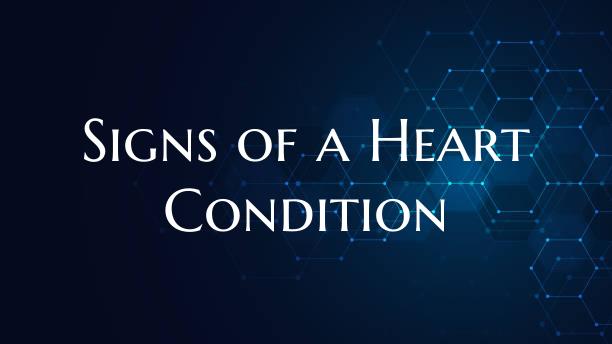
Signs of a Heart Condition
Recognizing the Signs of a Heart Condition
The heart is a vital organ that plays a crucial role in ensuring the proper functioning of the body. Identifying the signs of a heart condition early on is essential for seeking timely medical intervention and managing potential risks.
Here are some common signs and symptoms that may indicate a heart condition:
Chest Discomfort: One of the most well-known symptoms of a heart condition is chest pain or discomfort. This can manifest as a tightness, pressure, or squeezing sensation in the chest.
Shortness of Breath: Feeling breathless or experiencing difficulty breathing, especially during physical exertion or at rest, can be a sign of a heart problem.
Fatigue: Unexplained fatigue or weakness that persists despite adequate rest may be a sign of an underlying heart issue.
Palpitations: Irregular heartbeats, rapid heart rate, or the sensation of fluttering in the chest can indicate a heart rhythm disturbance.
Dizziness or Lightheadedness: Feeling dizzy, lightheaded, or fainting without a clear cause should not be ignored, as it could be related to circulation issues.
Swelling: Swelling in the legs, ankles, feet, or abdomen can be a sign of heart failure, where the heart is unable to pump effectively.
Persistent Cough: A chronic cough, especially one accompanied by pink or white frothy sputum, may indicate heart failure affecting the lungs.
If you experience any of these symptoms or suspect a heart condition, it is crucial to consult a healthcare provider promptly. Early detection, proper diagnosis, and timely intervention are key to managing heart conditions effectively and minimizing potential complications. Remember to prioritize your heart health by maintaining a healthy lifestyle, including regular exercise, a balanced diet, and regular check-ups with your healthcare provider.